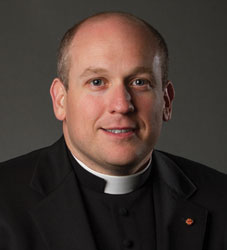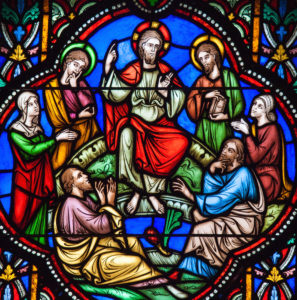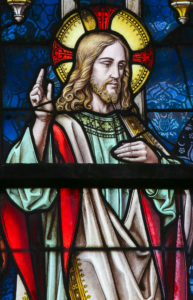 The Christian writer C.S. Lewis in his book Mere Christianity posed the question that Jesus Christ had to be one of three things: a lunatic, a liar, or, actually Lord as he claimed to be. Lewis was not the first to frame this conundrum, but he was the one who “popularized” the question. The question cuts to the point of stating who Jesus is. If he is not who he claims to be as Messiah and Lord then he is out of his mind for claiming to be the Son of God or he is a liar and a charlatan who deceived the masses. Surely we agree that Jesus was not insane nor he was he a liar, so, therefore, Jesus is Lord. Well, aren’t we glad that we settled that? If only it was that easy.
The Christian writer C.S. Lewis in his book Mere Christianity posed the question that Jesus Christ had to be one of three things: a lunatic, a liar, or, actually Lord as he claimed to be. Lewis was not the first to frame this conundrum, but he was the one who “popularized” the question. The question cuts to the point of stating who Jesus is. If he is not who he claims to be as Messiah and Lord then he is out of his mind for claiming to be the Son of God or he is a liar and a charlatan who deceived the masses. Surely we agree that Jesus was not insane nor he was he a liar, so, therefore, Jesus is Lord. Well, aren’t we glad that we settled that? If only it was that easy.
The question of who Jesus Christ is for each of us is far more pointed because each of us must offer a personal response. What makes this all the more difficult is that our own personal integrity is tied to our answer. “Who do you say that I am,” Jesus asks the Apostles and Jesus asks each of us. He is not looking for an answer from the Catechism or an answer that you can search for on Google. Jesus demands a personal response from each and every one of us.

Yes, he is Lord. Isn’t that why we call ourselves Christians? Isn’t that why we come to Mass on Sunday, and say our prayers, and wear crosses around our necks, etcetera, etcetera, etcetera? Yes, but is Jesus the Lord of all of my life, not just for one hour on Sunday or Saturday evening or just when I need him or when I feel guilty about something or when its convenient? We, you and I, have to ask ourselves honestly that if we acclaim Jesus to be who he says he is then we, as self-proclaimed Christians, have to reflect that truth in every aspect of who we are. True discipleship is not about giving a portion of ourselves but it is about giving over our total selves: thoughts, actions, words, desires, everything for Christ!
An honest read of the Gospels lets us know that there is no “fine print” with Jesus’s invitation to us to be his disciples. The Gospels are a perfect example of full disclosure and this is demonstrated this Sunday when Jesus not only asks us such a pointed question but then he tells us what those who want to be true disciples must be willing to embrace: the cross. However, that full disclosure is not just about hardship and sacrifice. The Gospels also tell us about the love, the life, the grace, and the mercy that Jesus wants us to know and possess in and through him. Making that personal statement that Jesus is Lord and Messiah means going “all in” for Christ. To offer all to and for Christ can be rather intimidating, but, as the Lord repeatedly says, do not be afraid! The Lord Jesus is with us with his grace to strengthen us and with his mercy for when we fail.

Saint Francis Xavier Seelos once said “no one was ever lost because his sin was too great, but because his trust was too small.” Do we trust in the Lordship of Jesus Christ? Do we trust in his power to change us and make us new? Do we trust in his power to save? Jesus’s question of “who do you say that I am,” presupposes trust if we are to answer the same as Saint Peter. Our total trust and reliance must be in the Lord Jesus. That trust is proven in our willingness to hold nothing back from him. We want to see the world renewed, the Church renewed, and ourselves renewed. This can and will happen, but if not in and through Jesus Christ then in and through whom?
Father Christopher House is the Rector of the Cathedral and serves in various leadership roles within the diocesan curia, namely Chancellor and Vicar Judicial.